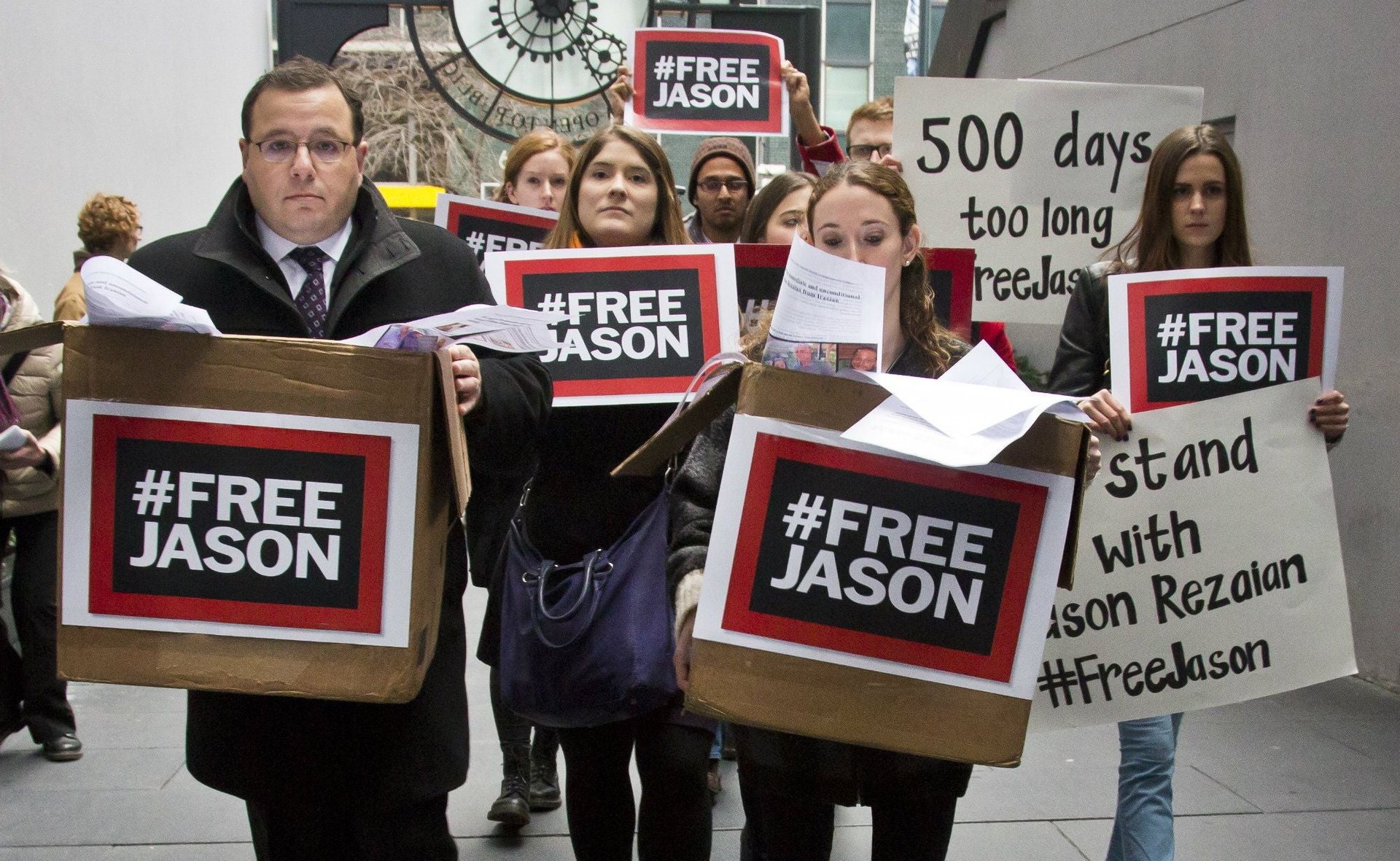Iran could win its PR war with Saudi Arabia by releasing its most prominent prisoner
“Sometimes, I think the only reason Saudi Arabia exists is to make us look good in comparison.”


“Sometimes, I think the only reason Saudi Arabia exists is to make us look good in comparison.”
The prominent Iranian politician who told me this during my trip to Iran a month ago had his tongue firmly in his cheek when he said it—and also had the grace to laugh when I told him my friends in the kingdom of Saudi Arabia say the exact same thing about the Islamic Republic.
That exchange has been much on my mind over the past couple of days, as Tehran and Riyadh have seemingly competed to make one another look worse in the eyes of the world.
When Saudi Arabia’s execution of 47 prisoners, including a well-known Shia cleric, earned international derision, some Saudis were quick to point out that Iran is much more enthusiastic in enforcing the death penalty. (The data bears that out.) After Saudi Arabia broke off diplomatic ties with Iran, apparently in response to the fire-bombing of its embassy in Tehran, and rallied other Sunni-led states to follow suit, many Iranians accused Riyadh of diplomatic hysteria. (There’s no empirical way to measure that, but the Saudi reaction has certainly smacked of overkill.)
On balance, it seems Tehran has the stronger argument. There’s growing consensus that the Saudis are mostly to blame for the latest escalation of hostility—very likely to draw attention away from the kingdom’s internal problems, political and economic, as well as its foreign-policy failures. The execution of the Shia cleric, Nimr al-Nimr, was bound to provoke by Iran, which sees itself as the champion of the world’s Shia. Coming on the same day that the Saudi-led Arab coalition decided to resume bombing Shia rebels in Yemen, it was bound to strengthen the perception that the Saudis were deliberately goading their sectarian rivals.
The Iranians aren’t the only ones who are upset. The Obama administration is mystified—and not a little miffed—with Riyadh’s behavior, especially because it scuttles Washington’s hopes for a peace deal in Syria, one that would need the blessings of the Iranians as well as the Saudis. Not surprisingly, some in Washington now favor rebalancing American relationships in the Middle East away from the Saudis and toward Iran.
The stage, then, is set for Iran to seize the initiative—to demonstrate that it is the bigger nation. What it needs now is a clinching public relations victory… and I’ve got just the idea.
Riyadh just executed its most famous detainee; to show up the Saudis, Tehran should set free its most prominent prisoner: Jason Rezaian.
Rezaian, a Washington Post reporter, has been in an Iranian prison since the summer of 2014. He should never have been arrested, and his sentencing, on trumped-up charges, was a travesty.
He’s not the only American imprisoned by Iran. Nor is he the only journalist: There are 18 others. (Only China and Egypt have imprisoned more journalists than the Islamic Republic.) But Rezaian’s case has attracted the most attention worldwide.
Rezaian—and the others—should be released because that’s the right thing to do. But since the regime in Tehran won’t be moved by moral argument, perhaps they can be persuaded by pure self-interest?
It has been suggested that Rezaian is a pawn in an internal political game, that he’s being held by hardliners in the Iranian regime in an effort to undermine Hassan Rouhani, the reform-minded president. But the hardliners seem just as embarrassed as the president is by the fire-bombing of the Saudi embassy. The reformists should now point out that there’s an easy way to turn embarrassment into triumph—by using the pawn against the kingdom.